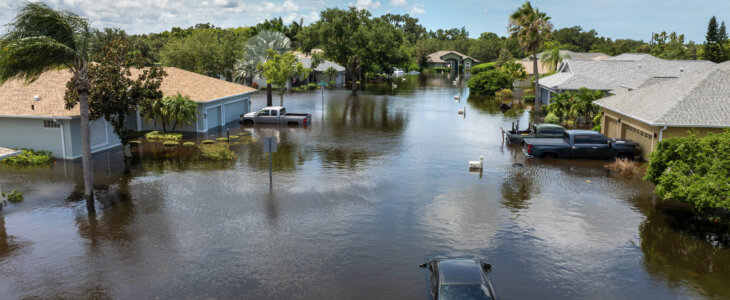After a hurricane, it’s normal to feel uncertain about what to do next, particularly when it comes to dealing with property damage and initiating the insurance claims process. Taking the correct steps early on can significantly impact how your claim is handled. From collecting evidence to comprehending your coverage, there are practical steps you can take to protect your rights and secure the compensation required to recover from a storm. Here’s what you should remember as you move forward.
Document Everything: Evidence Is Key
After a hurricane, gathering evidence is one of the most important steps you can take to protect your rights when filing an insurance claim. Once it’s safe to return to your property, take detailed photos and videos of all damage, both inside and outside your home. Capture images of structural damage, flooding, and any destroyed personal belongings. Creating a thorough inventory of damaged items, including their value, will also help bolster your claim.
Keep all receipts for temporary repairs, supplies, or accommodations. This documentation can be important when negotiating with your insurance company, as it serves as proof of your losses. Make sure you don’t throw anything away without first documenting it, as adjusters may need to inspect the items.
The more detailed your records, the stronger your claim. This evidence ensures that the insurance company has all the necessary information to assess your case fairly.
Report the Damage to Your Insurance Company Promptly
Reporting hurricane damage to your insurance company as soon as possible is critical in ensuring your claim is processed smoothly. Most insurance policies require timely notification of damage, and waiting too long could result in delays, disputes, or even denial of your claim. Once you’ve assessed the damage and documented everything, contact your insurance company to start the claims process.
When contacting your insurer, be clear and concise about the extent of the damage. Provide them with the necessary details, including photos, videos, and any receipts for temporary repairs or accommodations. Keep a record of all communications with your insurer, noting dates, names of representatives, and the content of your conversations. This paper trail can be helpful if there are issues later in the process.
Promptly reporting the damage helps ensure that the insurance company begins evaluating your claim right away, leading to faster resolutions and potential compensation for your losses.
Review Your Insurance Policy Carefully
Before filing a claim, thoroughly review your insurance policy to understand what is and isn’t covered after a hurricane. Pay close attention to the specific terms related to hurricane or windstorm coverage, as well as deductibles, exclusions, and coverage limits. Some policies may have separate deductibles for hurricane-related damage, and certain types of damage, such as flooding, may require additional coverage. If you have questions or encounter confusing language, consider reaching out for clarification to ensure you fully understand your policy. Knowing the details upfront can help you avoid surprises during the claims process.
Avoid Common Mistakes That Can Jeopardize Your Claim
When filing a hurricane damage claim, avoiding common mistakes can help protect your rights and maximize your recovery. One common error is accepting the first settlement offer from the insurance company without reviewing it carefully. These initial offers may not fully cover your losses. Another mistake is signing documents or waivers before consulting with a professional, which could limit your options later. Failing to document all damage or discarding items too quickly can weaken your case.
Seek Legal Help if Your Claim is Denied or Delayed
If your insurance claim is denied or delayed after a hurricane, seeking legal help can be crucial to ensuring a fair outcome. Insurance companies may deny claims for various reasons, such as insufficient documentation or misinterpreting policy terms. Delays in processing claims can also leave you without the resources needed to repair damage promptly. A lawyer can review your policy, gather additional evidence, and negotiate with the insurer on your behalf. They can represent you in legal proceedings to pursue the compensation you deserve if necessary.
Helping Florida Residents with Hurricane Damage Claims
At Tomlinson Law Group, we are committed to helping you recover the compensation you deserve after a hurricane. Our team will guide you through the claims process, protecting your rights every step of the way. Contact us today for a consultation, and let us help secure your financial recovery.


